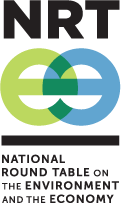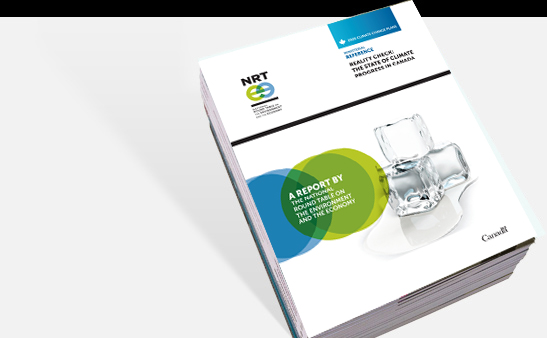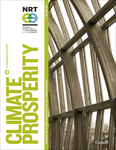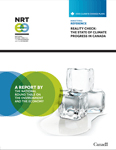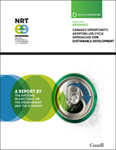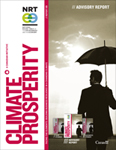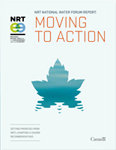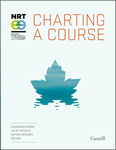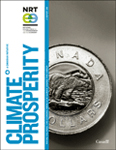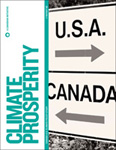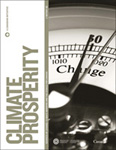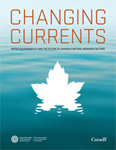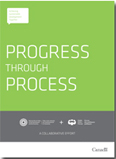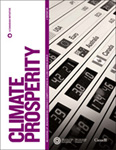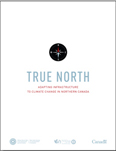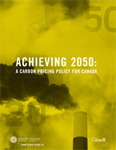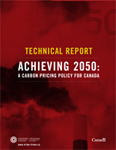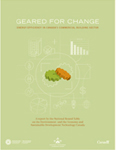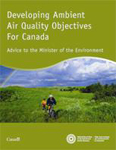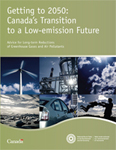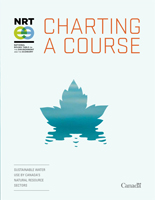Charting a Course: Sustainable Water Use by Canada’s Natural Resource Sectors
EXECUTIVE SUMMARYWater has both environmental and economic value. It is essential to sustaining ecosystems and growing our economy. Ensuring our natural resources sectors – the biggest water users in Canada – both have enough water to grow, and use that water more efficiently and sustainably, is what the NRT’s new water report is all about. Read the Executive Summary WATER USE BY THE NATURAL RESOURCES SECTORSSorry, either Adobe flash is not installed or you do not have it enabledThe natural resource sectors use and consume more water than any other sectors in the nation, accounting for approximately 86% of Canada’s water use in 2005.According to economic forecasts, the sectors are expected to experience significant growth, ranging from 23% to 58%, by 2030. Added to other stresses, like climate change and a resultant increase in the frequency of extreme weather events, the NRT has concluded that the long-term sustainability of our water resources may be in question. And more specifically that our governance and management structures may be not be well positioned to deal with an uncertain water future, especially with respect to water quantities in this country. Read more OUR FINDINGSOur research shows that we can address some of the water challenges associated with a prosperous resource sector by taking steps to
CONCLUSIONSWater Forecasts Historical water use by the natural resource sectors shows improved water-use efficiency for most sectors, even in the absence of water policies to motivate such efficiency gains. Policy Instruments Economic instruments (EIs) and voluntary initiatives have real potential for contributing to the goals of improving water conservation and water efficiency. Water-Use Data and Information A lack of reliable, publicly available data on water quantity has negative implications for current and future water resource management in Canada. Collaborative Water Governance Effective collaborative water governance requires the involvement of a broad range of stakeholders. RECOMMENDATIONSPrinciples for Water Governance and Management The NRT recommends that federal, provincial, and territorial governments developing new water strategies should adopt the following core principles in our report:
|
THE REPORTNEWS RELEASESNovember 17, 2011 – Canada needs fresh approach to water supply management for natural resource sectors COLLABORATIVE WATER GOVERNANCE
A PRICE ON WATER USE
WATER-QUANTITY DATA AND INFORMATION
|
Expert Advisory Committee Members
Assistant Director
United Nations University
Assistant Director
Horizontal Policy and Cabinet Strategies
Natural Resources Canada
President
Canadian Federation of Agriculture
Vice President, Canadian Federal Programs
AMEC Earth Environmental
Associate Director and Water Sustainability
Project Leader
Polis Project on Ecological Governance
Director, Water Soft Path Research
Polis Project on Ecological Governance
Chair, Expert Panel on Groundwater
Council of Canadian Academies
Manager, Environment and Technology
Canadian Electricity Association
Former Secretary, Canadian Section
International Joint Commission
Former Director, Environment
Forest Products Association of Canada
Professor and University Research Chair,
Water Policy and Governance
University of Waterloo
Assistant Deputy Minister
Environment Canada
Director, Alberta Water Council
Chair, Bow River Basin Council
Professor and Director
Centre for Engineering and Public Policy
McMaster University
Vice President, Sustainable Development
Suncor Energy Inc.
Director, Housing and Infrastructure
Assembly of First Nations
Deputy Minister
Prince Edward Island Ministry of the Environment, Energy, and Forestry
Executive Director
Fraser Basin Council
Administration and Environment
Agriculture and Agri-Food Canada
Vice President, Technical and Northern Affairs
The Mining Association of Canada
Program Manager, Freshwater Program
Walter & Duncan Gordon Foundation
Associate ADM and Chief Scientist
Assistant Deputy Minister’s Office
Natural Resources Canada
Environment and Regulatory Analyst
Canadian Association of Petroleum Producers
Professor, Department of Economics
Brock University
Chair, Canadian Partnership Initiative,
United Nations, Water for Life Decade;
Director, Western Watersheds Climate Research Collaborative
